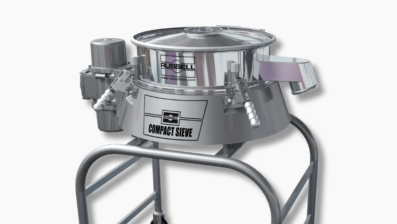Industrial Flour Sifter Manufacturers: Delivering Excellence in Baking Industry Equipment

The baking industry relies heavily on the quality and consistency of its ingredients to produce the highest-quality baked goods. One of the essential pieces of equipment that contributes to this consistency is the industrial flour sifter. Flour sifters play a crucial role in ensuring that flour is free from lumps, contaminants, and moisture, providing a fine and uniform texture essential for the production of cakes, bread, pastries, and more. The development and innovation in industrial flour sifters have greatly enhanced the efficiency of bakeries and flour mills, contributing to the overall success of the baking industry. This article explores how industrial flour sifter manufacturers have raised the bar in delivering excellence in baking industry equipment.
The Importance of Industrial Flour Sifters in Baking
In any bakery or food production setting, the role of flour is fundamental. Flour quality affects not only the texture and taste of baked goods but also their appearance and overall structure. Industrial flour sifters ensure that flour is sifted properly to remove foreign particles, prevent clumping, and improve the consistency of the flour. This step is essential in ensuring that the final product has the right texture, smoothness, and uniformity.
Sifting flour also helps to aerate it, preventing dense, heavy products that may result from improperly mixed ingredients. For instance, in cakes or pastries, the fine and light texture achieved through sifting is key to producing soft, airy results. By eliminating impurities and separating flour into finer particles, flour sifters contribute to a more consistent mixing process, which is especially important for mass production.
In addition to quality assurance, industrial flour sifters also play a significant role in increasing production efficiency. Manual sifting is labor-intensive, time-consuming, and prone to inconsistencies. Modern industrial sifters automate this process, allowing bakeries to operate faster, meet large demands, and maintain high standards of quality.
How Industrial Flour Sifter Manufacturers Are Innovating
The market for industrial flour sifters is highly competitive, with numerous manufacturers striving to offer cutting-edge technology and improve the performance, efficiency, and reliability of their equipment. Over the years, industrial flour sifter manufacturers have embraced innovations that address both operational and technical challenges faced by the baking industry. Below are some key advancements that have been made in industrial flour sifter design and functionality.
1. Automation and Control Systems
One of the most notable innovations in industrial flour sifters is the incorporation of automation and advanced control systems. Modern sifters come with automated feeding mechanisms, ensuring that the correct quantity of flour is sifted with minimal human intervention. Additionally, many systems are equipped with digital controls that allow operators to easily adjust settings such as sieve mesh size, vibration speed, and sifting time.
The automation of flour sifting has increased the efficiency of bakeries, allowing them to scale production without sacrificing quality. By reducing the need for manual labor, automated sifters also reduce the risk of contamination and ensure greater consistency.
2. Multi-Deck Sifting Technology
Manufacturers have developed multi-deck sifting technology that enables flour to be sifted through multiple screens simultaneously, improving efficiency and ensuring finer separation. These multi-deck sifters typically consist of several stacked sieves that allow for different levels of filtration, making it easier to remove coarse particles and impurities at various stages of the process. This multi-level filtration improves the overall purity of the flour, resulting in higher-quality products and reducing the risk of contamination.
Multi-deck sifters also help bakeries achieve higher throughput and uniformity while maintaining a compact design. This allows bakeries to handle large batches of flour with ease, making these systems ideal for both small and large-scale food production environments.
3. Vibration and Rotary Sifting Systems
To optimize the sifting process, many modern flour sifters use vibration or rotary systems to facilitate the movement of flour through the mesh. Vibration systems use oscillating motion to shake the flour through the mesh screens, ensuring that even fine particles are separated efficiently. These systems allow for faster sifting, helping bakeries keep up with high production demands.
Rotary sifters, on the other hand, use a rotating drum or cylinder to sift flour. The motion helps break up any clumps and ensures a consistent flow of flour. The key benefit of rotary sifters is their ability to handle large volumes of flour while providing accurate, uniform separation.
4. Durable Materials and Hygienic Design
Hygiene is of utmost importance in the food industry, and industrial flour sifter manufacturers have made significant strides in improving the hygienic design of their equipment. Many sifters are now built with stainless steel or food-grade materials to prevent rust, corrosion, and contamination. These materials are easier to clean and sanitize, helping to maintain high standards of hygiene and food safety.
The hygienic design also includes features such as smooth surfaces, easy-to-remove screens, and accessible cleaning ports. These design improvements ensure that bakers can maintain their equipment efficiently without worrying about bacteria or contaminants accumulating within the sifting system.
5. Energy Efficiency
With energy costs rising, energy efficiency has become a major consideration in industrial flour sifter design. Manufacturers are increasingly integrating energy-saving technologies into their machines, such as optimized motors that reduce energy consumption while maintaining high performance. Additionally, energy-efficient components and intelligent sensors help minimize waste and ensure that the sifter operates only when necessary, further enhancing energy savings.
Benefits of Industrial Flour Sifters
- Increased Production Capacity: Automated flour sifters enable bakeries to process large quantities of flour quickly, significantly improving production efficiency. This is especially important for large-scale bakeries that need to meet high-volume orders without compromising on quality.
- Consistent Product Quality: Sifting flour ensures uniformity in texture, which is crucial for producing consistent, high-quality baked goods. With advanced control systems, manufacturers can ensure the same level of sifting quality for every batch.
- Labor Savings: Automation reduces the need for manual labor, allowing bakery workers to focus on other tasks while the sifter performs the sifting process. This leads to a reduction in labor costs and an increase in overall production efficiency.
- Improved Hygiene and Food Safety: The use of food-grade materials, easy-to-clean surfaces, and automated systems reduces the risk of contamination and ensures that the flour meets industry hygiene standards.
- Cost Efficiency: Energy-efficient designs help lower operational costs by reducing energy consumption, while durable materials extend the lifespan of the machines, minimizing the need for costly repairs or replacements.
Conclusion
Industrial flour sifters are an indispensable part of modern baking operations, ensuring that flour is processed to the highest standards for quality, consistency, and efficiency. Flour sifter manufacturers are continuously innovating to meet the evolving needs of the baking industry, offering advanced solutions that integrate automation, energy efficiency, and hygienic designs. These innovations not only enhance production capabilities but also help bakeries maintain high-quality standards, reduce labor costs, and improve overall operational efficiency. As the baking industry continues to grow, industrial flour sifter manufacturers will remain at the forefront of providing essential equipment that drives excellence in food production.



